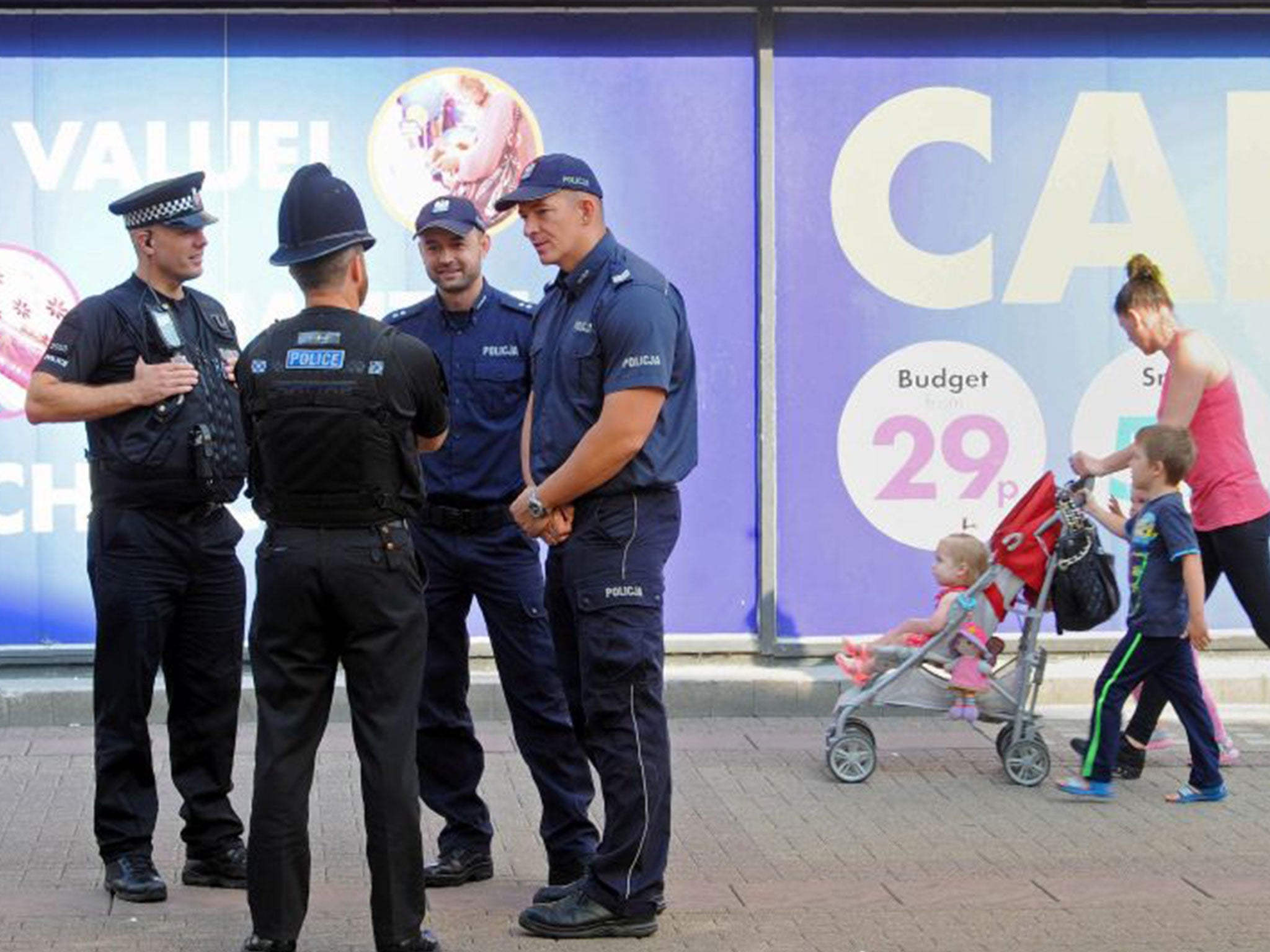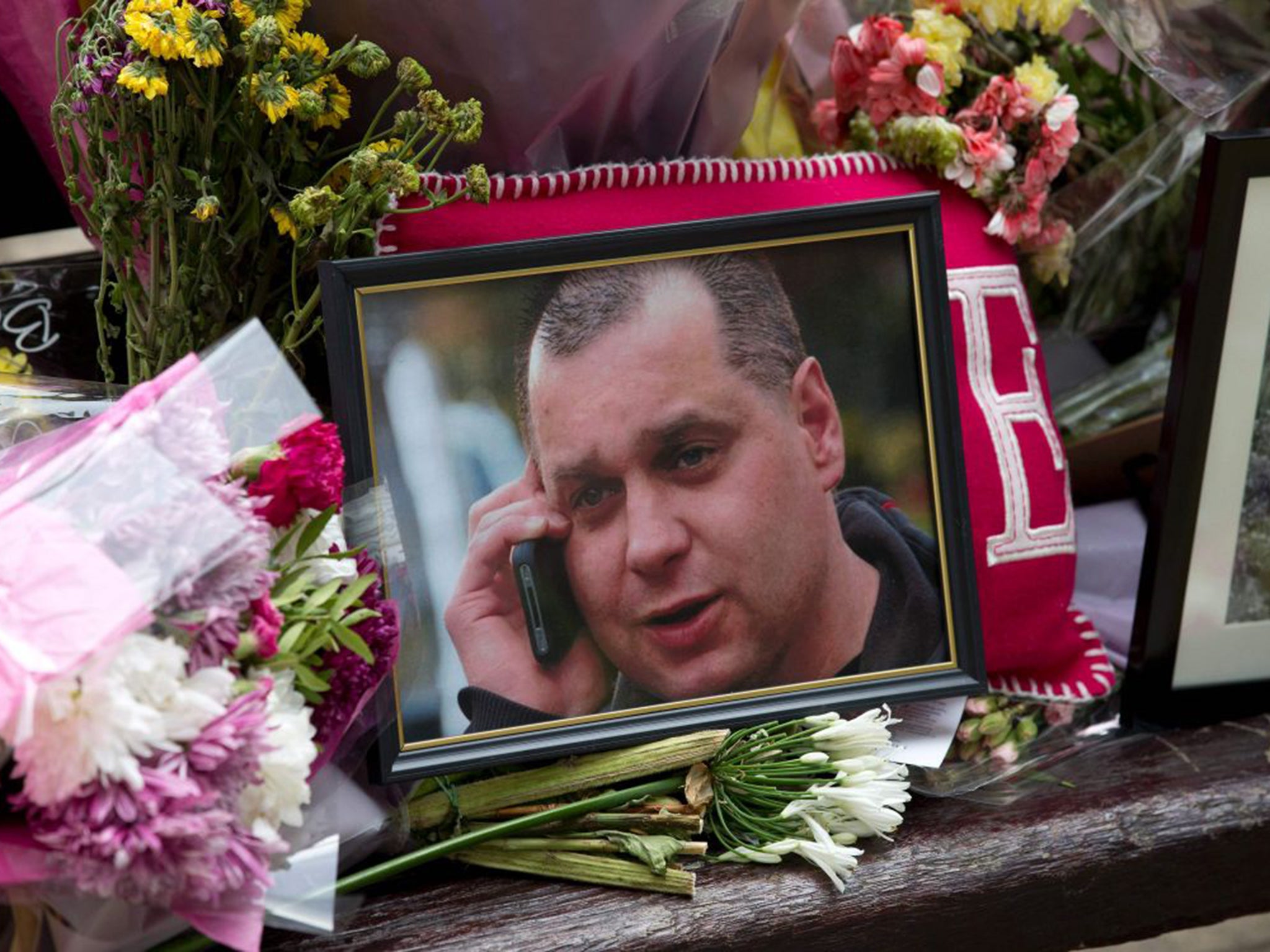Arek Jóźwik killing: Arrival of Polish police on streets of Harlow greeted with suspicion
Some Poles put off by bad experiences with police in their own country as two officers fly in from Poland

The arrival of police officers from Poland after the killing of a Polish man in Harlow appears to have split the area’s Polish community, with some saying they do not trust the police because of bad experiences with officers back in their home country.
Others say they have been reassured that two Polish officers have come to patrol the streets of Harlow after Arek Jozwik, 40, died after in the town on 27 August.
Police are treating the attack as possibly racially aggravated and the incident has contributed to European Commission president Jean-Claude Juncker condemning attacks on Polish people in the aftermath of Britain voting for Brexit in the EU referendum.
Mr Jozwick’s death has also been linked by some commentators to the outpouring of so-called ‘post-referendum racism’ that followed the June vote. Visiting Harlow last month, Arkady Rzegocki, Poland’s ambassador to the UK, spoke of “much more” racism occurring since the referendum.
Fears also intensified after two other Polish men were assaulted in Harlow town centre, just hours after attending a silent vigil for Mr Jozwick on 4 September.
The Polish police officers – Second Lieutenant Bartosz Czernicki and Chief Sergeant Dariusz Tybura, who will be working in and around Harlow with different communities for seven days – were patrolling with local officers on Thursday morning.
Asked if there had been any feedback from the Polish community, Chief Inspector Alan Ray, district commander for Harlow, said: “We’ve had mixed messages.
“Some are saying to us, ‘We don't trust police officers and that’s from our experience from Poland’. Others are saying, ‘We welcome these Polish police officers in’.”
He added, however: “The experiences we’ve had on the street with the Polish police officers have all been positive. They’ve been welcomed by the community.”

Mr Ray explained: “The Polish government made the offer to Essex Police to send Polish officers to Harlow to help with community engagement and we thought that was a good idea.
“We welcomed them with open arms and they’re now policing the town, not using any powers as such but just on the community engagement side, to meet and greet the public and to reassure the community.”
Mr Ray said the feedback had been “fairly even” in terms of positive and negative, adding: “You'll get that if you ask questions to any community. You’ll get positives and negatives. And our job now is to bridge those gaps and make sure the people of Harlow can talk to the police and report incidents to the police.”
He said it is the police’s role to “build that trust” with communities.
“There is a fear of Polish police and there is a fear of English police, and that comes from all different communities. Some people will trust us, some people won’t,” he said.
The presence of the Polish officers is “about reassurance in all communities”, Mr Ray said, adding that over the last year only two per cent of victims in Harlow were Polish nationals.
One resident who chatted to a Polish officer and his British counterpart seemed happy. Paula Templeman, 36, said they were “completely approachable” and said the Polish officer “seemed lovely”.
Last week a Polish man was beaten by a group of up to 20 teenagers in a suspected racially aggravated assault in Leeds.
Theresa May called the Polish prime minister, Beata Szydlo, to express her “deep regret” and to stress “hate crime has no place in UK society”.
On Wednesday Mr Juncker used his annual state of the union address to declare: “We Europeans can never accept Polish workers being beaten up, harassed or even murdered in the streets of Essex.”
The organisers of an online page to raise money for Mr Jozwik’s family have said the factory worker’s only crime was “contributing to the British society, being a good citizen, but speaking another language”.
When The Independent visited the town earlier this month, some immigrants admitted that they had thought of leaving Harlow in the wake of Mr Jozwick’s death.
Others, however, insisted that Harlow was not a “racist town” and questioned whether the incident was more closely linked to anti-social behaviour by bored residents. One British-born resident complained of “little scumbags looking for anyone to pick on”.
